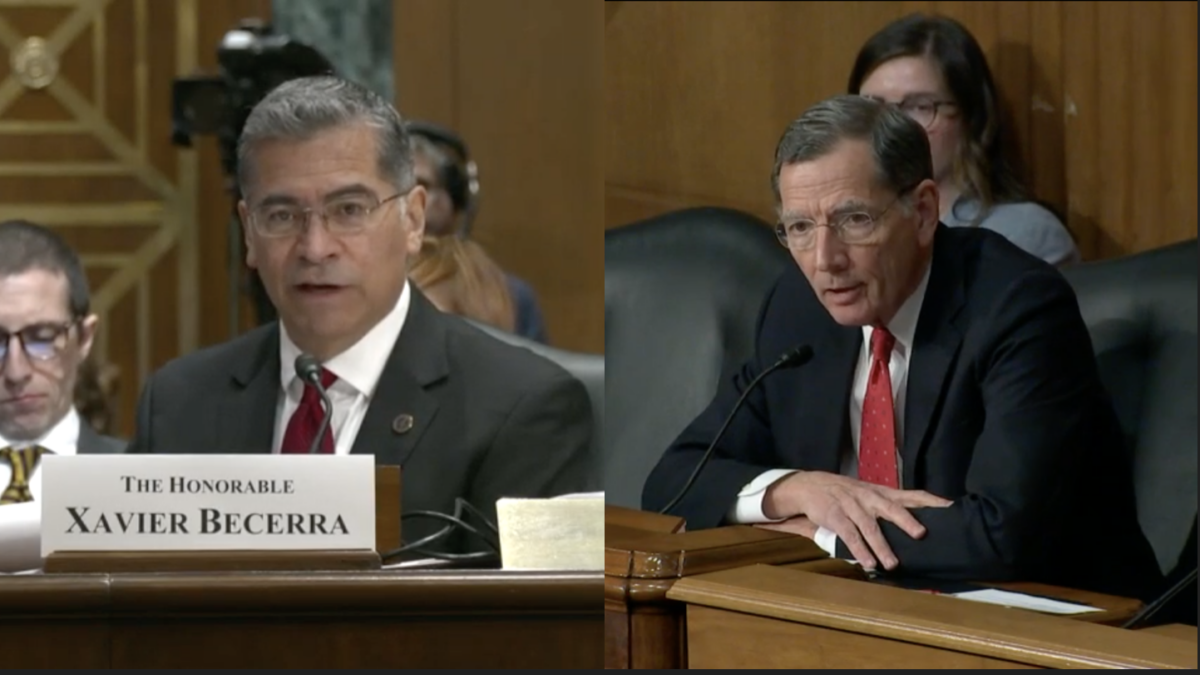
Ann Coulter’s new book on immigration, “Adios America,” just hit number six on The New York Times’ nonfiction bestseller list. The media coverage of Coulter’s controversial book, coupled with President Obama’s 2014 executive amnesty and a fresh wave of immigrants crossing the desert this summer, have exacerbated and brought to the fore the chronic frustrations of pro-sovereignty Americans. As a result, speaking English will undoubtedly enter the debate as yet another point of contention.
On air with Simon Conway on June 6, Coulter lamented the fact that citizenship ceremonies are given in Spanish: “The INS has waived the English requirement for many immigrants. And that obviously goes to the heart of it: Are you switching allegiances? Do you love this country?”
Recently on The Federalist Radio Hour, Coulter claimed that speaking Spanish indicates a refusal to assimilate, flatly denying the validity of statistics indicating the economic mobility and widespread English proficiency of second-generation immigrants, saying that “they” find all sorts of ways to lie.
At First, Enforcing English Makes Sense
It’s not that Coulter doesn’t have any reasonable thoughts—her complaint about the government funding special language accommodations (English as a Second Language classes, for instance) and therefore lowering the expectations for new immigrants seems valid. Even so, the English requirement she favors is a similar sort of government meddling, mandating English instead of letting its socio-economic capital speak for itself. Two heads of the same beast, Coulter loves one and loathes the other.
Yet her special antipathy toward Spanish is obvious given the title of her book, and since then her latest comments on language haven’t focused on perverse government incentives, but rather attacks on Spanish-speaking immigrants. Mainstream conservatives are likely to back Coulter’s language phobia, though, because they believe English unifies America, solidifying our national identity and facilitating a strong economy. If we all communicate effectively, that makes growth easy.
When faced with the argument that language should be a private or local issue, dedicated patriots who might otherwise be federalists puff up their chests and say, “English is American. If English isn’t our official language, if English loses its dominance, we’ll lose our culture!”
So, in other words, “‘Murica.”
But the anger and frustration driving efforts for “language unity” are not only based on ignorance of language dynamics, they are misdirected entirely. All “English-only” efforts trace back to concern over threats to American sovereignty, namely, illegal immigration. Scrambling for some sort of foothold, many conservatives find some rest for their sore fingers by balancing on a tiny outcropping: the pro-English agenda.
Little do they realize that they’ve chosen the wrong foothold. Before I can suggest a better one, let me explain why the pro-English agenda is not it.
Freedom Unifies Us, Not Language
Teddy Roosevelt best sums up the pro-English argument that survives ‘til this day: “We have room for but one language in this country, and that is the English language, for we intend to see that the crucible turns our people out as Americans, of American nationality, and not as dwellers in a polyglot boarding house.”
Despite this century-old misconception, English is not what keeps this country unified. Indeed, it is not even what brought us together. Although English has been by far predominant throughout American and pre-American colonial history, German and Dutch were also prominently spoken during the colonial era. It’s estimated that during the 1750s roughly one-third of Pennsylvanians spoke German.
What brought America into existence was an ideology of independence; what kept America together were the principles of democracy, limited government, and the very ideas expressed in our Constitution: equality of men and man’s natural rights, including life, liberty, and the pursuit of happiness.
The growing welfare state and modern entitlement mentality aside, most conservatives would agree that America has largely been a self-selecting population, where people have elected to move to America for her liberty, her justice, her historically fierce opposition to tyranny, and her opportunity. It is not English that draws people here, nor does it daunt them from coming; many arrive speaking hardly a word of English, yet they are determined to succeed.
As the Linguistic Society of America stated: “The English language in America is not threatened. All evidence suggests that recent immigrants are overwhelmingly aware of the social and economic advantages of becoming proficient in English, and require no additional compulsion to learn the language.”
To this point, while sometimes immigrants who arrive later in their lives may never learn to speak English well, as decades of data have shown, second-generation immigrants generally speak both English and Spanish, and by the third generation, they speak only English.
English Was Never Under Threat
Despite rumors to the contrary (there’s a longstanding myth that we were one vote shy of having German as our official language) English as the prevailing national language has never been under serious threat by neither German nor Spanish.
According to the 2010 census data on language use, out of about 60.5 million residents above the age of five who were reported as speaking another language in the home, 22.4 percent were reported as speaking English “not well” or “not at all.” Out of the 291.5 million responses analyzed in this report, this would represent less than 5 percent of the U.S. population that do not speak English at all or can’t speak it effectively.
If this is the case, the English-only crowd is essentially crying wolf when they frame English as being threatened. By this measure, we shouldn’t need to argue whether a decline of English translates to a degradation of American culture and “societal glue.” However, under the present administration’s approach to foreign policy and perspective on America’s place in the world, it does seem the fear of a decline in American culture is growing.
A Case of Misdirected Frustration
As with the English-only agenda as a whole, the fear of a decline in our popular culture is misplaced. Rightists resent illegal aliens for their blatant violation of American sovereignty, but what is more troubling to many are some tightly knit communities of immigrants who are seen as rejecting the general American culture in favor of living what outsiders can only perceive as a better version of Mexican or Latin American or Chinese culture within U.S. borders.
Such self-imposed cultural isolation would seem to be more common among those who have immigrated illegally. Rather than invest in becoming an American—as those who have waited patiently for years to immigrate legally—many illegals exploit the opportunity in this country while belonging to another.
The refusal to assimilate exacerbates conservatives’ just indignation over the violation of our laws, yet through some social convolution their frustration has manifested itself under the “English and American culture is under attack” banner.
Amid the influx of illegal immigrants across our borders, and the clear complacency of the federal government and many states (California at the fore) in the enforcement of immigration law, the English-only agenda is a desperate and misguided attempt to prove our American identity by appointing English as its champion and asserting its national supremacy. Channeling the attitudes of Roosevelt, they convince themselves “there is room for only one language” in America, despite the fact that an entire fifth of the population speaks another language at home.
Promoting English as inherent to our American identity stems from a long-held insecurity among those on the Right that our sovereignty cannot be entirely saved, that the borders will never be secure, that we will always have millions of illegal residents living under government complacency and reaping public benefits while dodging the responsibilities of citizens. So naturally, our symbolic sovereignty must be ever more zealously protected.
It is the violation of the rule of law and inherent unfairness of an illegal population that most pro-English conservatives are truly angry about, not the fact that a neighbor speaks more Spanish than English. As for Coulter’s frustrations, although the threat to English is far overblown, we would be closer to saying “Hola, America” than bidding our beloved country adios.
To all the pro-English ‘Muricans, I love you, but please climb down from the cliff before you hurt yourself. You don’t need to prove your patriotism, and America certainly doesn’t need state-sponsored English to prove its awesomeness.









